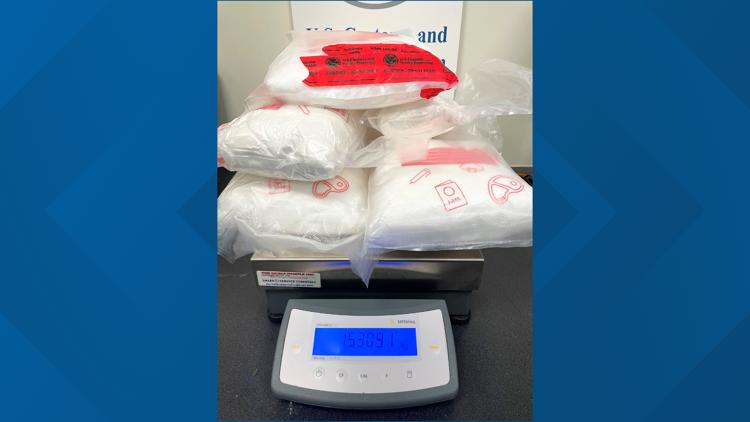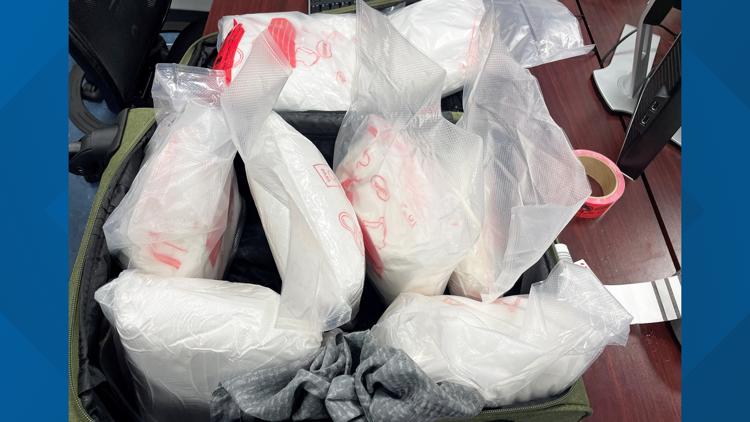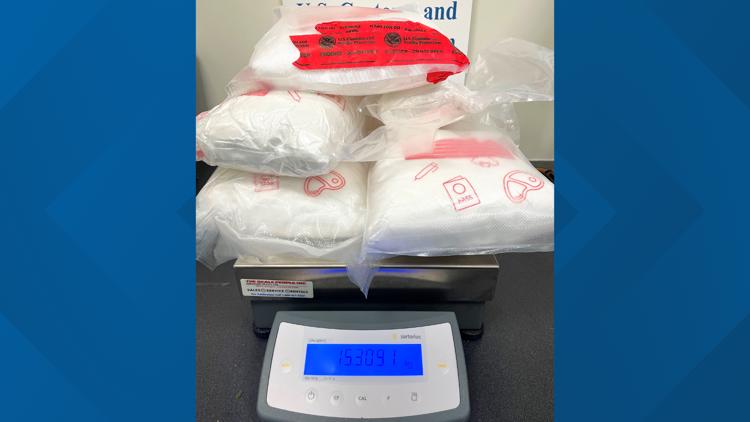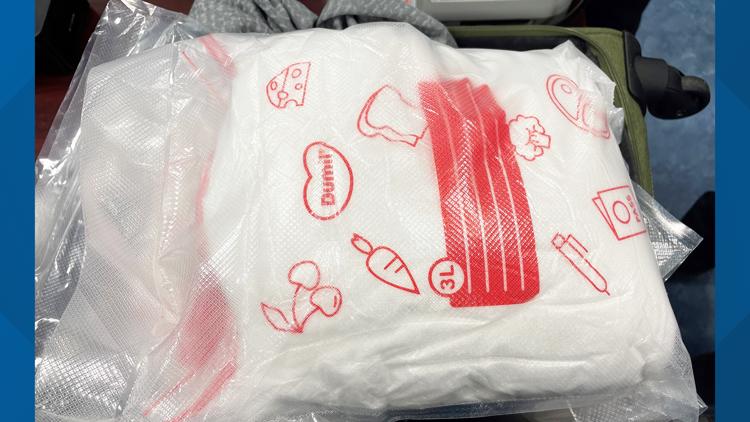STERLING, Va. — Customs officials say they found nearly 34 pounds of ketamine hydrochloride, an animal tranquilizer often abused by users, inside a suitcase at Dulles Airport.
The ketamine arrived in an airline’s rushed baggage from Amsterdam and was detected in an X-ray on Aug. 8, according to U.S. Customs and Border Protection (CBP) officers at Washington Dulles International Airport.
When officers opened up the suitcase, they found eight pouches full of a white crystalline substance. CBP officers tested the substance and identified it as ketamine, often known on the street as "Special K."
All combined, the eight pouches contained about 15.3091 kilograms — or 33 pounds and 12 ounces — of ketamine, which CBP says has a street value of about $900,000.
CBP: Nearly 34 pounds of ketamine found inside suitcase at Dulles Airport
An investigation is ongoing into who the bag belongs to. Because it was a rushed bag, CBP says the traveler connected to the suitcase was not on site.
“Transnational criminal organizations continue to smuggle their dangerous drugs into the United States, but Customs and Border Protection officers and agriculture specialists work very hard every day to intercept these illicit shipments,” said Marc Calixte, Area Port Director for CBP’s Area Port in D.C.
Ketamine hydrochloride is a Schedule III non-narcotic compound regulated under the Controlled Substances Act. According to the Drug Enforcement Administration (DEA), it is is used in both human and veterinary medicine to induce sedation, immobility, and provide pain relief.
In recent years, ketamine has also been used by medical professionals to treat mental health and substance use disorders. The drug is known for its ability to induce dissociative sensations and hallucinations, and has often been used by criminals to facilitate sexual assault. Ketamine overdoses can lead to nausea, irregular heart rate, muscle stiffening, unconsciousness, and respiratory failure leading to death.











